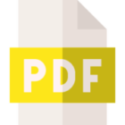Zikica Milosević – Faculty of Technical Sciences Novi Sad, Trg Dositeja Obradoviéa 6, SRB-22000, Novi Sad, Serbia
Andrea Ivanisević – Faculty of Technical Sciences Novi Sad, Trg Dositeja Obradoviéa 6, SRB-22000, Novi Sad, Serbia
AIpar Lošonc – Faculty of Technical Sciences Novi Sad, Trg Dositeja Obradoviéa 6, SRB-22000, Novi Sad, Serbia
Ivana Katić – Faculty of Technical Sciences Novi Sad, Trg Dositeja Obradoviéa 6, SRB-22000, Novi Sad, Serbia
Danijela Cirić Lalić – Faculty of Technical Sciences Novi Sad, Trg Dositeja Obradoviéa 6, SRB-22000, Novi Sad, Serbia
Minja Bolesnikov – Faculty of Technical Sciences Novi Sad, Trg Dositeja Obradoviéa 6, SRB-22000, Novi Sad, Serbia
Keywords:
Managers;
Motivation;
Hybrid work model;
Pandemic;
COVID-19
DOI:
https://doi.org/10.31410/ERAZ.2024.333
Abstract: Hybrid work environment was discussed even before the COVID-19 pandemic and the arrival of Generation Z en masse, and it was implemented in some areas, but the pandemic period marked a clear disruption event, changing the work environment forever. Instead of teleworking, which was prevalent during the pandemic times, or switching back to full office work, hybrid work environment has become the obvious solution that could preserve “the best of both worlds”: instead of “toleration occasional teleworking” it has become widely seen as an “inseparable part of competitive advantages” for both the organisation and employees. Work/life balance and work/life flexibility are increased in the hybrid model, the autonomy, competence, and connectedness can reach the optimal balance, and the productivity has risen, thus enabling the competitive advantage. A hybrid model seems to be an optimal solution for the future job market, where employees with task-based jobs can feel moti- vated, especially in so-called creative industries. The managerial role in this future job market is crucial, since it has changed drastically in the last 4 years, and the more flexible managers, who are less control-obsessed and possess tacit knowledge and motivational skills will progress more in the new work environment, which include territorially dispersed workers, like digital nomad, the full-time office workers and the “hybrid workers” all at once. The managers who observe which factors can yield the best results and what model suits which workers may lead their organisations to better results as a consequence of this new flexibility.


10th International Scientific Conference ERAZ 2024 – Conference Proceedings: KNOWLEDGE BASED SUSTAINABLE DEVELOPMENT, hybrid – online, virtually and in person, Lisbon, Portugal, June 6, 2024
ERAZ Conference Proceedings published by: Association of Economists and Managers of the Balkans – Belgrade, Serbia
ERAZ conference partners: Faculty of Logistics, University of Maribor, Maribor (Slovenia); University of National and World Economy – UNWE, Sofia (Bulgaria); Center for Political Research and Documentation (KEPET), Research Laboratory of the Department of Political Science of University of Crete (Greece); Institute of Public Finance – Zagreb (Croatia); Faculty of Tourism and Hospitality Ohrid, University of St. Kliment Ohridski from Bitola (North Macedonia)
ERAZ Conference 2024 Conference Proceedings: ISBN 978-86-80194-86-8, ISSN 2683-5568,
DOI: https://doi.org/10.31410/ERAZ.2024
Creative Commons Non Commercial CC BY-NC: This article is distributed under the terms of the Creative Commons Attribution-Non-Commercial 4.0 License (https://creativecommons.org/licenses/by-nc/4.0/) which permits non-commercial use, reproduction and distribution of the work without further permission.
Suggested citation
Milošević, Z., Ivanišević, A., Lošonc, A., Katić, I., Cirić Lalić, D., & Bolesnikov, M. (2024). Motivation and Managerial Role in the Hybrid Work Environment. In P. Alexandre et al. (Eds.), ERAZ Conference – Knowledge Based Sustainable Development: Vol 10. Conference Proceedings (pp. 333-341). Association of Economists and Managers of the Balkans. https://doi.org/10.31410/ERAZ.2024.333
